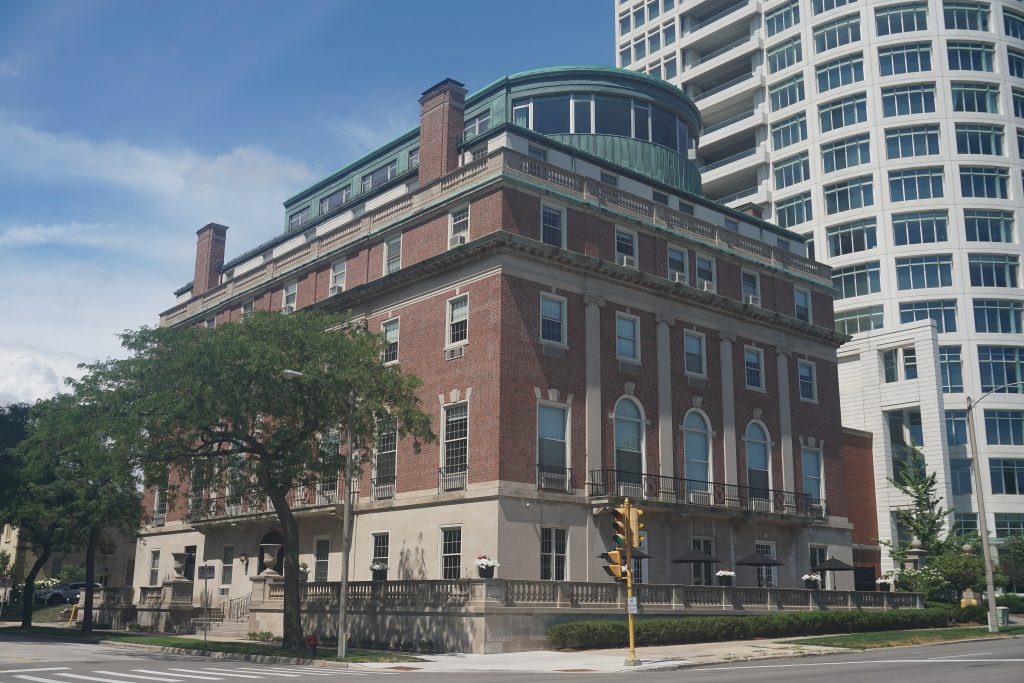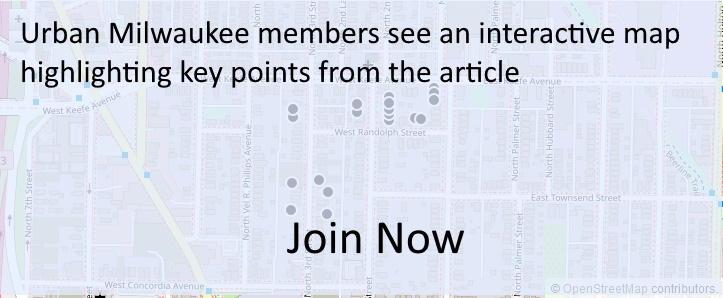University Club Pays $1 Million Settlement Over Improper PPP Loan
DOJ takes legal action against $600,000 federal pandemic loan the club claimed.

University Club of Milwaukee, 924 E. Wells St. Michael Barera, CC BY-SA 4.0 <https://creativecommons.org/licenses/by-sa/4.0>, via Wikimedia Commonssit
The University Club of Milwaukee has agreed to a $1 million settlement with the U.S. Department of Justice (DOJ) over allegations that it improperly participated in a COVID-19 related loan program.
During the pandemic, the club”improperly obtained” a $600,000 Paycheck Protection Program (PPP) loan from the U.S. Small Business Administration (SBA), according to the DOJ, which brought a legal action against the club on behalf of the SBA.
The club contends it applied in “good faith” and believed it was in compliance with requirements for the loan, which it used to “support the Club and it’s employees” during the pandemic, according to a November email to club members from Jim Caragher, the immediate past president.
The program provided a forgivable loan for small businesses and non-profits to cover payroll and other eligible expenses, like mortgage, lease or utility payments. As long as all the funds were spent on eligible items the government would forgive the loan and interest.
“The Paycheck Protection Program was an important but limited resource made available by Congress to assist small businesses around the country suffering the financial impacts of the COVID-19 pandemic,” said Gregory J. Haanstad United States Attorney for the Eastern District of Wisconsin. “But in making this resource available, Congress made a legislative determination that public funds would not be provided to private clubs that restricted their membership for reasons other than capacity. This settlement represents the continued efforts of the Small Business Administration and the Department of Justice to enforce Congress’s legislative determination and protect the public.”
The PPP loans were governed by the same eligibility rules as traditional SBA loans, which deny eligibility to private clubs and organizations that limit membership. The DOJ contends that the University Club was not eligible for the loan because of its membership restrictions.
When the club applied for the loan, it operated a private country club and dining facilities closed off to the general public and limited its membership for reasons other than capacity, rendering it ineligible for the loan.
“At the time we applied for the PPP loan, the responsible Club officers believed in good faith that our Club met the applicable eligibility requirements, including an existing SBA rule that disqualified clubs that limited memberships for reasons other than capacity,” Caragher said. “SBA and DOJ now contend that we enforced membership limitations and were not eligible for the loan.”
The $1,003,993.86 settlement covers interest on the loan and penalties, and it resolves the matter while allowing the club to admit no liability.
The club settled to avoid the “cost and uncertainty” of litigation, according to Caragher.
“The Club strenuously denies that it acted improperly,” Caragher said. “In fact, we contend that PPP support was crucial to maintaining business operations during that period of time.”
The University Club closed its downtown City Club, 924 E. Wells St., in 2023 and sold the historic Georgian Revival building to Northwestern Mutual this past year. It had occupied the six-story building since 1928. It maintains a location, called the Country Club, in Brown Deer.

Existing members must be signed in to see the interactive map. Sign in.
If you think stories like this are important, become a member of Urban Milwaukee and help support real, independent journalism. Plus you get some cool added benefits.






















Bit of History on “restricted membership”: In 1982, I became the first female Chairwoman of MATC which had a membership in the University Club like the other colleges in town. The University Club however limited use of its dining facility to men only, as did the Milwaukee Athletic Club and others. As a result, a Trustee of MATC who was also the Chairperson of the board was restricted. After complaint, the University Club quickly changed course and dropped the sexual preference. By the 1980s women were rapidly eliminating this discrimination. But it is good to keep in mind that women only won the right to vote in this country in 1920s. I’m proud of my small contribution to women’s rights.